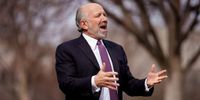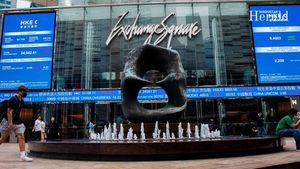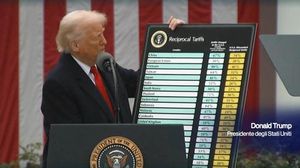In a dramatic shift for Tesla Inc., renowned analyst Dan Ives of Wedbush Securities has cut his price target for the electric vehicle (EV) giant from $550 to $315, while still maintaining an "Outperform" rating on the stock. This decision comes amid growing concerns over the impact of President Donald Trump's tariffs, which Ives described as "economic Armageddon" for Tesla, warning that these duties will create a "double whammy" for the company.
According to Ives, the tariffs will not only diminish Tesla's profits in the United States but also create significant challenges for the automaker in China, a market he deems crucial for the company's future success. He stated, "The backlash from Trump tariff policies in China and Musk's association will be hard to understate." Ives also pointed out that Tesla's "self-created brand issues" have likely caused the company to lose at least 10% of its future customer base globally, a figure he believes could be conservative.
Recent market activity reflects these concerns. Over the past month, Tesla's shares have gained 8%, but they have plummeted 42% over the last three months. This decline is part of a broader trend, as Tesla's stock has dropped 52% from its all-time high in December 2024. On April 7, the stock fell as much as 11%, trading around $214, well below the $235 mark predicted by Commerce Secretary Howard Lutnick as the lowest price Tesla would ever reach. Lutnick had previously described the stock as "unbelievable" in its cheapness, suggesting it would "never be this cheap again." However, the recent tariffs have erased any gains, contributing to a broader sell-off in global markets.
The situation is compounded by Tesla's performance in Europe, where sales dropped 40% year-over-year in January 2025, even as the overall EV market grew by 26%. Despite these challenges, retail investors have continued to show remarkable loyalty to Tesla, pouring $7.3 billion into the stock over a 12-day period following the sales news. This surge marked the most significant buying streak in a decade, according to JPMorgan's "Retail Radar" report.
Steve Sosnick, chief strategist at Interactive Brokers, noted that this loyalty stems from a "faith-based" investment approach. He explained, "Core investors have an undying faith in and love of Elon Musk. In fact, I’ve frequently referred to it as a 'faith-based' stock." Despite the challenges, many investors remain optimistic about Tesla's future, particularly regarding its transition from a car manufacturer to an AI-driven mobility company.
However, analysts caution that the company's automotive business is under pressure from fierce competition and pricing challenges. 2024 marked Tesla's first-ever annual delivery decline, raising questions about Musk's divided attention and growing political controversies. John Blank, chief equity strategist at Zacks Investment Research, emphasized that investors are increasingly concerned about whether Tesla remains Musk's top priority.
Despite the tumult in the automotive sector, Tesla's long-term prospects remain compelling. The company is sitting on a substantial cash reserve of approximately $37 billion at the end of 2024, which could help it navigate through turbulent times. Its Energy Generation and Storage segment is also showing remarkable growth, with revenues soaring 113% year-over-year in the fourth quarter and energy storage deployment reaching 11 gigawatt-hours.
Yet, challenges persist. The launch of the Cybertruck in 2024 was marred by significant problems, leading to recalls and disappointing sales figures. Furthermore, Tesla faces increasing competition from traditional automakers and new entrants in the EV market, both domestically and internationally. Companies like Rivian and Lucid Group, along with Chinese competitors such as BYD, are gaining ground as Tesla's overseas sales decline.
In the wake of the recent tariffs, legacy carmakers have also extended their declines, with Stellantis plunging over 9% and Ford sliding nearly 3% as investors worry about the lack of resolution on Trump's controversial tariff policy. Tesla's stock sank nearly 7% amid the broader market wreckage on April 7, reflecting the overall market sentiment.
As Tesla navigates these turbulent waters, the question remains whether its ambitious expansion into energy, AI, and autonomous driving can offset the significant challenges in its automotive business. The execution of this transformation is crucial for maintaining the faith of retail investors, who have shown remarkable resilience in the face of adversity.
In summary, while Tesla's stock has faced significant headwinds, the company's long-term growth potential remains a focal point for many investors. As the automotive landscape evolves, the ability of Tesla to adapt and innovate will be key to its survival and success in a rapidly changing market.







